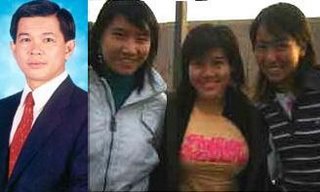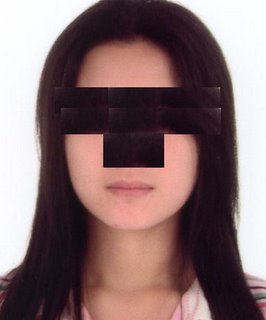From
The Akha Heritage FoundationHuman Trafficking
Akha Woman Imprisoned in Singapore's
Changi Prison - Why Does Singapore Imprison the Victims of Trafficking?The Imprisonment of Ms. Meitinee Wongsa. Changi Prison ID S12369
We request her release.
The Brothel and Trafficker:
New Rose Karaoke3/4 Chaiyakul Uthit Rd Soi 3
Hat Yai Songkhla, Thailand
Tel: 074-223 176
Mgr: 01-738 1797 (Ah Kib)
Name of trafficker : Chatkaew Sripormma (Female)
Contact Number : +66-8-94662262
We call on the Thai Police to arrest this trafficker.

Picture of the front of the New Rose Brothel in Hatyai.
A larger image. Large ImageHow is it that the Singapore Police are so inefficient to find this information, when we are able to find out exactly what brothel and the woman who trafficked Ms. Wongsa into Singapore?
We know there are MORE Akha women in the Changi prison.
How many Akha women are in Changi Prison?
We request to know the answer.
We request to know, how ICA knows she came into the country, if they do not have a record from Anti Vice, and if they have a record with Anti Vice, then they know who Ms. Wongsa was sent to in order to get her permit for "work" in Singapore. Those are the individuals who have contacts with the trafficking agents. ICA is not being honest about this case.
ICA said that Ms. Wongsa applied to solicit legally in singapore through AVB. AVB rejected her application and recommend to ICA to ban her from entering singapore in the future. Ms. Wongsa was directed to go to Anti Vice and apply, through prior arrangement. Why she was rejected is unknown at this time, but Anti Vice is certainly aware of the particulars.
At the time that Ms. Wongsa entered Singapore, she could not speak Thai, or any other language but Akha, could not read or write. Certainly the arrangements have been made between Hatyai and Anti Vice.
We are concerned that the government of Singapore does not recognize the issue of trafficking and that Akha women are trafficked into their country for brothels. The Singapore Immigration people (ICA) have repeatedly told us that they are "checking into the case" but then never reply to our email.
We are informed that there numerous Akha women in Changi prison, possibly also victims of trafficking into Singapore. Does Singapore arrest victims of trafficking? We find it disgusting that Singapore allows women to be trafficked into the country for what ever reasons. We find it more disgusting that they put the victims in prison.
Ms. Wongsa was sentenced to one year in Changi Prison this last week.
She entered Singapore on documents supplied by her Employment Agent from Thailand but was refused a work permit and sent out of the country in 2004. Now on her own documents, Thai ID card and Passport, she has entered Singapore with her fiance. When she applied for an extension of visa as she and her fiance were to marry, the Singapore authorities told her that she had previously traveled under a different name and passport supplied by her employer, so was now to be arrested.
Upon her previous trip and return to Thailand, her employer told her that the Singapore police demanded 100,000 baht and she was made to repay this money working in Hatyai.
When Akha children are born, Thai authorities often give them a Thai name on their travel documents and any made up birth date. Employers often supply the Akha with documents for travel, as they may not even have an ID card of their own. These are the agreements they have to live with as contract labor. In some cases, contract labor may be more like trafficking or debt bondage. While it appears that Ms. Wongsa's employer was familiar to the Singapore police, Ms. Wongsa is being made to pay the price for what is often standard practice for people being shipped from Thailand to foreign countries.
There is little to no protection for ethnic women who find themselves in this situation in Thailand.
We have contacted the Singapore Embassy and Ambassador in the US, the ICA in Singapore, an MP in Singapore, Amnesty International and a number of individuals and agencies regarding this case. We are asking that her case be reviewed and that Akha women are not made to pay the price for either trafficking or unethical Agents who put them in these situations. We are asking that she be released and NOT deported from Singapore.
Please contact the Singapore Embassy regarding this case.
Singapore





